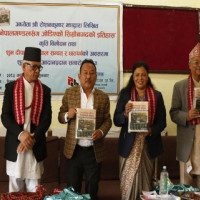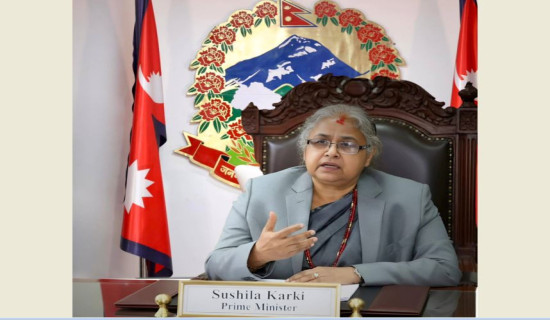- Monday, 20 October 2025
Pop icon Leslie Cheung's legacy endures 20 years after death
Hong Kong, Apr. 3: Fans of late Canto-pop icon Leslie Cheung, one of the first singers to come out as gay in Hong Kong, flocked to the city this week to commemorate their idol's death 20 years ago — revisiting his legacy of pioneering work made during a socially conservative time.
Cheung, who was 46 when he died, was a superstar known for his singing, dancing and acting during the heyday of Hong Kong's entertainment industry in the 1980s and '90s. His supporters, who span across Asia, fondly remembered his norm-breaking works and called him "ahead of time."
The 20th anniversary of Cheung's death on Saturday drew crowds of both local fans and supporters from mainland China to visit exhibitions about him in Hong Kong. Even the government included concerts and film screenings about him in the city's first pop culture festival, which is slated to officially kick off in three weeks.
Outside of the official exhibits, a steady stream of fans visited the Mandarin Oriental Hotel, where Cheung had killed himself. The narrow strip of pavement next to the hotel was completely covered by a sea of flowers, cards, origami and posters.
The local reminiscences of Cheung prove the late celebrity remains a popular icon across generations of Hong Kongers and reflects the desire for reviving the city's cultural influence, said Anthony Fung, professor of the school of journalism and communication at the Chinese University of Hong Kong. "After so many years, we hardly find any new icons, new superstars who could reach that level of importance," he said.
Cheung, who was affectionately known as Gor Gor — "big brother" in Cantonese — produced many hits that even non-Cantonese speaking music lovers in other parts of Asia could sing along to. Those include "Monica," "Sleepless Nights Restless Heart" and "Chase." He also starred in classic films including John Woo's "A Better Tomorrow," Wong Kar-wai's "Happy Together," Stanley Kwan's "Rouge" and Chen Kaige's "Farewell My Concubine."
But behind all of his success, Cheung suffered from depression. He jumped to his death from the Mandarin Oriental Hotel in central Hong Kong on April 1 in 2003, sending shockwaves across the city. His death came as his hometown was battling the SARS epidemic, which ultimately killed hundreds and crippled the local economy.
"We really miss him. His songs and films take us back to the wonderful time of Hong Kong which is not the same as nowadays. We'll miss it," said Justin Cho, a fan from the city who came with his friend to lay flowers at the hotel in honor of the actor.
Hong Kong fan Connie Leung, a retiree now in her 60s, recalled her disbelief when she first heard about the news of his death from a former colleague. "I said 'don't make such a joke on April Fools' Day'," she said.
She said Cheung's songs never became outdated and his fashion tastes, including his iconic long hair, were modern — even by today's standards.
Chris Choi, Cheung's concert choreographer in the 2000s, said the late superstar broke through many gender boundaries by introducing "unisex" ideas, some of which were risky at the time. Among his stage costumes, for example, were seashell culottes and red high heels.
"It told people art has no boundaries," he said.
Cheung also broke through the city's cultural status quo by boldly revealing his gay relationship in a conservative local society at that time— a decision that could have ruined his career but has earned him a lot of respect from the gay community, Fung said. The breakthrough was about the plurality of culture that he celebrated, he said.
















